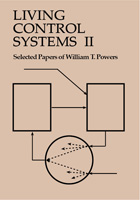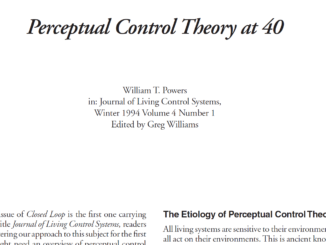Related Articles

Living Control Systems II
About Bill Powers Contents Page Foreword In 1979, Bill Powers wrote a prophecy: “A scientific revolution is just around the corner, and anyone with a personal computer can participate in it…. [T]he particular subject matter […]

Perceptual Control Theory at 40
This intro to PCT is slanted toward those coming into to this subject from the physical sciences. Bill Powers develops an argument that leads from conventional views of behavior to the new view that PCT gives us, emphasizing in the end the odd role that organisms, seen through the eyes of PCT, play in a world otherwise dominated by physical laws. The point will be to show that control theory provides us with the germ of a radically new understanding, a break with all traditional theories of behavior—and many new ones as well […]

Perceptual basis of bimanual coordination
Franz Mechsner, Dirk Kerzel, Günther Knoblich & Wolfgang Prinz Mechsner, F., Kerzel, D., Knoblich, G. et al. Perceptual basis of bimanual coordination. Nature 414, 69–73 (2001). https://doi.org/10.1038/35102060 https://www.nature.com/articles/35102060
